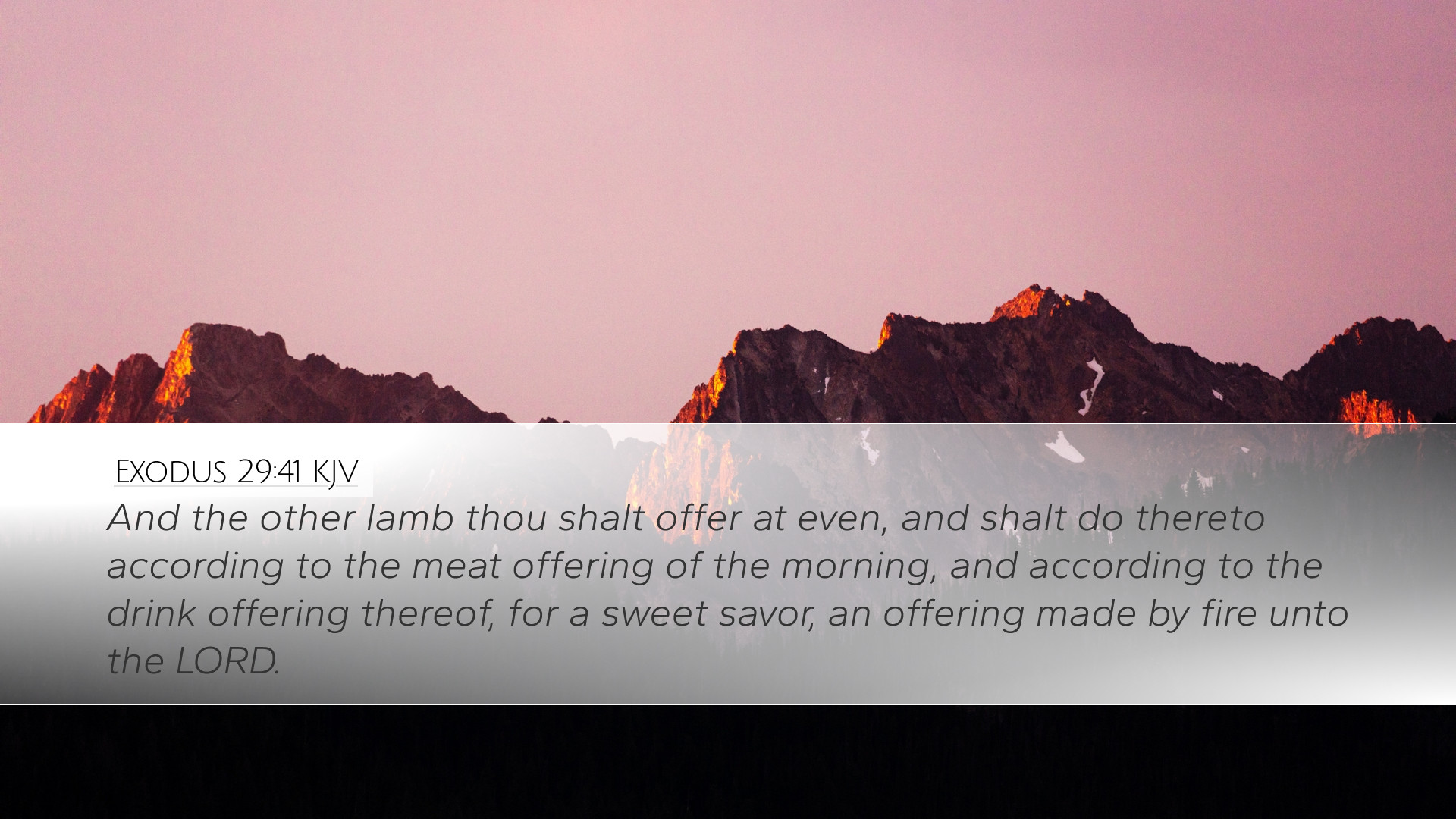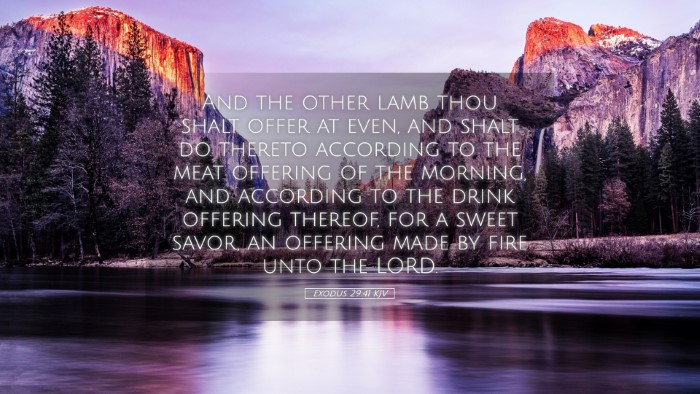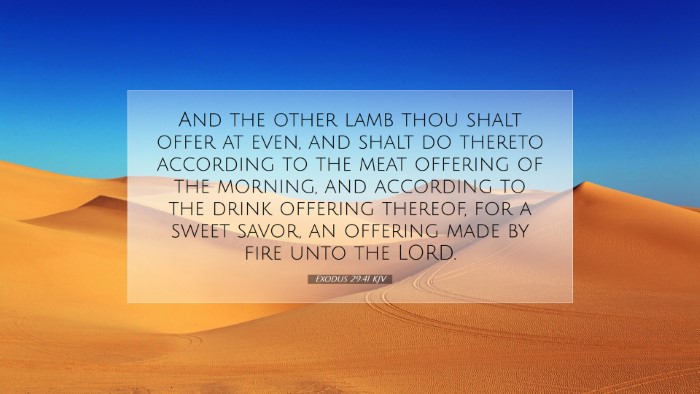Commentary on Exodus 29:41
Verse Overview: Exodus 29:41 states, “And the other lamb thou shalt offer at evening; and shalt do thereto according to the meat offering of the morning, and according to the drink offering thereof, for a sweet savour, an offering made by fire unto the Lord.” This verse is part of the instructions given to Moses regarding the consecration of Aaron and his sons as priests, reflecting the importance of worship and the proper approach to God.
General Context
The Book of Exodus details the departure of the Israelites from Egypt and their covenant with God. The instructions in chapter 29 pertain specifically to the consecration of the Levitical priesthood. This chapter emphasizes the exclusive and holy nature of worship, underscoring that priests must be properly equipped and have a designated offering in their duties.
Insights from Public Domain Commentaries
Matthew Henry's Commentary
Meditation on the Offerings: Matthew Henry highlights the significance of the daily offering of lambs, emphasizing that the evening sacrifice mirrors the morning offerings. The repetitions signify a continual acknowledgment of God’s holiness and presence. Each sacrifice is meant to create a “sweet savour,” indicating that God is pleased with the offerings of His people.
The Role of the Priest: Henry asserts that this ritual illustrates the priest's role in interceding for the people, demonstrating both sacrifice and communion with God. The morning and evening offerings frame the day in worship, reminding believers that every part of life should be offered to God.
Albert Barnes's Notes on the Bible
Evening Sacrifice Explanation: Barnes interprets the evening offering as not simply a ritual but as crucial in the life of Israel. It serves as a reminder that worship should permeate both beginning and end of the day. The necessity of precise adherence to these offerings shows the seriousness of approaching God and the need for preparation in worship.
Symbolism of Offerings: Barnes also notes that the offerings symbolize Jesus Christ, the ultimate sacrifice. The lambs offered continually point to Christ, whose sacrifice is eternal, fulfilling the law and paving the way for direct access to God.
Adam Clarke's Commentary
Detailed Ritual Instructions: Clarke provides a meticulous examination of the offerings. He emphasizes that these offerings were not mere forms but encompassed a heartfelt devotion to God. The meticulous nature of the offering signifies the importance God places on how believers approach Him.
Understanding “Sweet Savour”: Clarke elucidates that the term “sweet savour” conveys the notion of acceptability before God. It reminds believers that true worship must be grounded in sincerity and faith, indicating that God desires not just ritual but genuine worship from the heart.
Theological Implications
- Principle of Regular Worship: The command to offer sacrifices both morning and evening reinforces a pattern of regular worship, promoting the idea that engaging with God should be a foundational aspect of life.
- Access Through Sacrifice: These offerings highlight the privilege of access to God through sacrifice, prefiguring Christ's atonement, which empowers believers to enter into God’s presence with confidence.
- Community and Worship: These communal rituals foster a sense of identity among the Israelites as God's chosen people, reinforcing the importance of corporate worship and accountability in their relationship with God.
Practical Applications
As pastors and theological students study this passage, they may draw several practical applications:
- The Importance of Routine in Spiritual Life: Regular times of worship can cultivate a deeper relationship with God, reminding believers of their need for Him in every aspect of life.
- Understanding Sacrificial Worship: Emphasizing the necessity of sacrifice in worship serves as a reminder of the cost of discipleship and the foundation of the believer’s relationship with Christ.
- Encouragement for Congregational Worship: This verse encourages the church to prioritize corporate worship, recognizing that coming together to offer worship reflects the unity of God's people.
Conclusion
Exodus 29:41 serves as a profound reminder of the sanctity of worship and the role of sacrifice in approaching God. Through the exploration of this verse, it becomes evident that God desires not only the ritual but the heart behind the offering. In light of Christ's ultimate sacrifice, believers today are called to a continual offering of their lives as living sacrifices, reflecting the holiness and grace of God.


